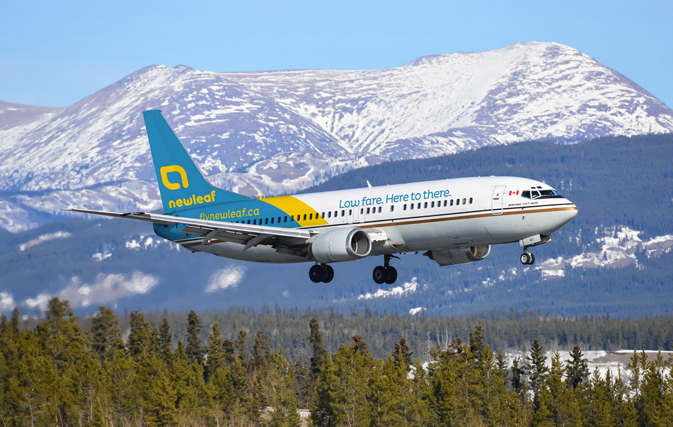TORONTO — As summer travel season gets underway, Canadians no doubt will be scanning the skies for bargain-priced flights.
Some may have been expecting to fly with NewLeaf Travel, a Winnipeg-based startup that billed itself as an alternative to airlines like WestJet and Air Canada when it launched in January to much public fanfare.
But a week after the company started selling tickets, it hit some turbulence over whether it needed a licence to operate.
NewLeaf suspended ticket sales and refunded flights it had scheduled for February as it awaited a ruling from the Canadian Transportation Agency.
The company contended that it did not require a licence because it is not an airline and doesn’t operate airplanes. Instead, it purchases seats from Kelowna, B.C.-based Flair Airlines and resells them to the public. Flair Airlines, which owns and operates a fleet of Boeing 737-400 jets, is licensed under the CTA.
On March 30, the agency ruled in favour of NewLeaf and cleared the way for the company to resume ticket sales. At that time, NewLeaf CEO Jim Young said the company expected flights to take off in late spring or early summer.
Since then, there’s been little movement from the company.
Lisa Krishka, a spokeswoman for NewLeaf, said it still plans to begin travel this summer. She would not offer a specific restart date.
Canadian aviation experts say a number of reasons may be behind the lack of clarity on a relaunch.
On Thursday, the Federal Court of Appeal agreed to hear an appeal by air passenger rights advocate regarding whether the CTA has the authority to permit NewLeaf to operate without a licence.
At issue, according to Gabor Lukacs, is that other companies have operated under similar business models and have required licences.
He doesn’t expect the court to hear the appeal until at least the fall, but urged that passengers need to be cautious while the case is still under review.
The court did not say whether NewLeaf would have to put off its relaunch until the hearing. The company did not respond to a request for comment late Thursday after the court’s decision.
But Robert Kokonis, president at aerospace consultancy AirTrav Inc., suspects NewLeaf may be trying to beef up investment before they launch again.
“The airline business is a cash-intensive business,” he said.
Kokonis said there is demand for discount carriers in Canada where base fares are low but any add-ons, from luggage to seat selection, are considered extras and come with accompanying fees.
“(Canada) is the only major aviation market in the world that doesn’t have an ultra-low cost carrier,” he said, noting that a number of factors stay in the way.
“We have a very high cost structure, fees, charges, and taxes that scares away ultra-low cost carriers. The successful ultra-low cost carriers of the world in the U.S., in continental Europe and Asia, thrive on a very dense geographic area to offer flights. … Canada is very dispersed with not a huge population.”
Bruce Cran of the Consumers’ Association of Canada said people should be wary when booking with new startups that operate under a new business models because they can be exempt from having to provide protections on baggage and cancelled flights afforded to passengers who directly book with established airlines.
“They should be cautious because this is something completely new that we’ve never had before in Canada,” he said.

